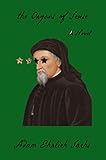In June, my partner and I moved from Boston back to Brooklyn, where we last lived, separately, almost a decade ago. The cost of moving and the inevitable decline in square footage occasioned a (very) reluctant jettisoning of books, though you wouldn’t know it from visiting our apartment, where almost every inch of wall space is now taken up with self-installed shelves of questionable sturdiness holding “must-haves,” such as galleys of NYRB Classics from the late 2000s, giant undergraduate philosophy anthologies, and that book of Don DeLillo short stories that I swear is climbing out of giveaway boxes and following us, Toy Story-style, across the country.
All of which is to say that it sometimes felt like I spent
as much time lifting, sorting, stacking, shelving, and contemplating the
physical necessity of books as reading them this year. Nevertheless, I did read
a bunch of them.









 I started the year reading My Tender Matador by the Chilean writer Pedro Lemebel, after learning about him in Alejandro Zambra’s Not to Read. Lemebel, who died in 2015, was a brave and outspoken gay activist, and his novel combines a high camp sensibility with grave political concerns in a way that’s reminiscent of his Argentinian predecessor Manuel Puig. Lemebel dares to enter the perspective of Pinochet, and is blessedly merciless in his depiction of the ugliness and emptiness of what lies within the dictator’s mind. I wish this novel was better known, and that more of Lemebel’s work was available in English, because my Spanish remains terrible.
I started the year reading My Tender Matador by the Chilean writer Pedro Lemebel, after learning about him in Alejandro Zambra’s Not to Read. Lemebel, who died in 2015, was a brave and outspoken gay activist, and his novel combines a high camp sensibility with grave political concerns in a way that’s reminiscent of his Argentinian predecessor Manuel Puig. Lemebel dares to enter the perspective of Pinochet, and is blessedly merciless in his depiction of the ugliness and emptiness of what lies within the dictator’s mind. I wish this novel was better known, and that more of Lemebel’s work was available in English, because my Spanish remains terrible.
Though Lemebel’s novel is fast, funny, and relatively short, I thought of it while reading Life and Fate by Vassily Grossman, a nearly 900-page, deeply unfunny book. Like Lemebel, Grossman was determined, at all costs, to speak hard—impossible, in his case—truths about the governing ideology of his time. (His novel was confiscated by the Soviet authorities and not published until long after his death, in the 1980s.) After years of people telling me to read it, I was finally convinced to take it on over afternoon beers with an n+1 editor, who made it clear that our continuing friendship was contingent upon my reading it. OK, I haven’t finished it yet. But after a few hundred pages, I can safely affirm that it is one of the most emotionally intense books I’ve ever read—page after page of horror and empathy across the Soviet Union during the battle of Stalingrad, including possibly the most devastating letter—from a mother, being sent to a death camp, to her son—in all of literature. I cried while reading this book in an airport, and then on a plane, and then on a bus. So maybe read it at home?
Rounding out the nightmare political portion of the year’s reading, I was totally engrossed by Francisco Goldman’s The Art of Political Murder: Who Killed the Bishop?, about the brazen murder of a Guatemalan bishop following his involvement in the compilation of a report detailing the military’s atrocities against civilians, many of them indigenous. It’s a fascinating and horrifying work of investigative journalism—if you liked Say Nothing by Patrick Raden Keefe (which I certainly did), you should read this, as well as the scabrously funny Senselessness by Horacio Castellanos Moya, which fictionally depicts the writing of a report very much like the one Bishop Gerardi was murdered over.
I read Her First American by Lore Segal after reading about it in a great essay on Segal’s work by Madeleine Schwartz. It’s a novel about an Austrian war refugee falling in love with an alcoholic black intellectual in New York in the ’50s. It may well be the perfect novel. It seems criminally under-known, or under-discussed at least. I read it around the same time as I read For Rouenna by Sigrid Nunez, an incredibly dark novel about a woman who serves as a field nurse in the Vietnam War, then returns home to a grim and circumscribed existence. I think the title might be holding this one back from becoming the modern classic it should be. That led me associatively, I think, to The Lover by Marguerite Duras, which I had pretended to have read for years. It’s really great! And Dorothy just put out a funky collection of her nonfiction, Me, that is well worth reading, too.
I read two and a half books of Proust—part two of The Guermantes Way through The Captive—and decided that he is not overrated. I also read a bunch of Annie Ernaux, and I’m currently reading The Kingdom by Emmanuel Carrere and Vernon Subutex by Virginie Despentes. I wish I knew French. I wish I was French.
I read excellent new books by my friends. Caleb Crain’s novel Overthrow and Andrew Marantz’s nonfiction chronicle Antisocial make a nice holiday pair, covering the surveillance state and the rise of the right-wing Internet with matching red and black covers. Adam Sachs’s The Organs of Sense is the funniest, smartest book about an eyeless astronomer you’ll ever read. And Miranda Popkey’s Topics of Conversation is the best novel of next year—I’m so sure of it that I’m not going to bother reading any other new books in 2020.
Finally, I listened to James Atlas’s lovely audiobook reminiscence of his friendship with Philip Roth. It’s a short, sweet New York memoir that captures the character of the great novelist and biographer, both now gone and deeply missed. Let it serve as an elegiac gateway back into their unruly, essential bodies of work.
More from A Year in Reading 2019
Do you love Year in Reading and the amazing books and arts content that The Millions produces year round? We are asking readers for support to ensure that The Millions can stay vibrant for years to come. Please click here to learn about several simple ways you can support The Millions now.
Don’t miss: A Year in Reading 2018, 2017, 2016, 2015, 2014, 2013, 2012, 2011, 2010, 2009, 2008, 2007, 2006, 2005
The post A Year in Reading: Andrew Martin appeared first on The Millions.
Source : A Year in Reading: Andrew Martin









